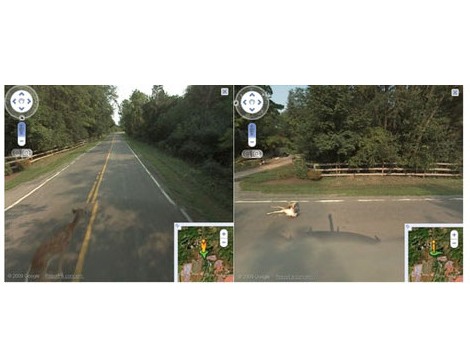Google needs a butler to turn it from the dark side
Opinion: it's all going a bit Batman. Google needs an Alfred

With the possible exception of Bananaman, every comic book hero has somebody to provide a moral compass. Spider-Man has the memory of his Uncle Ben to remind him that with great power comes great responsibility, while Batman has his butler, Alfred, to tell him if he's going off the rails. The heroes need those people, because, of course, power corrupts and absolute power corrupts absolutely.
So who's Google's butler?
We're not suggesting that Google's founders dress up like animals and beat up bad guys in their spare time, although if they do then we'd love to see the evidence. But online, Google is developing superpowers - and sooner or later, those powers will turn Google to the dark side.
Just look at these numbers. 97 per cent share of mobile Internet search. 90-plus per cent of UK search queries. Over 70 per cent of the US search market, with 90 per cent in sight. 42.9 per cent of all Internet video playback.
What's interesting about those figures isn't just the scale, but the story behind them. Monopolies usually appear because big firms swallow up, block or beat up little ones, but Google's rise is based on something much more wholesome: making cool stuff. However, anybody who believes that "don't be evil" and "make cool stuff" will keep Google on the straight and narrow deserves to be banged up in Arkham Asylum.
When an organisation is as big and as powerful as Google, it's all too easy for other firms to end up crushed. Sometimes that's because Google simply speeds up the inevitable - if you work for a directory publisher, a map maker or a local newspaper, Google Search, Google Maps and Google News are helping to draft your P45 - and sometimes it's because its market dominance makes it impossible for anybody else to get a look-in.
Take mobile search, for example. If people expect Google on their mobile, then Google is what the networks will provide, in exactly the same way that netbook manufacturers favour Windows XP over Linux.
Get daily insight, inspiration and deals in your inbox
Sign up for breaking news, reviews, opinion, top tech deals, and more.
Last, but not least, there's the spectre of Google flexing its mighty muscles. Look at the spat between YouTube and PRS For Music, with Google effectively banning UK musicians from the service because it isn't happy with the fees PRS wants it to pay.
With 42.9 per cent of online video views YouTube isn't a monopoly yet, so PRS members can still get exposure elsewhere - but what would happen if YouTube had the same market share that Google has for search? Musicians would have a simple choice: do what Google wants, or get stuffed.
For now, Google is an enormous force for good - but as it dominates more and more sectors, the chance of it going off the rails grows too. Google already owns search and mobile search, it's got the lion's share of online ads, it's a huge player in online video, mapping and cloud computing, it's moving into telephony, and if Chrome keeps improving at the current rate it's going to have serious market share in browsers too.
That means it's not a case of if Google will start putting its own interests above the wider Internet's interests; it's a case of when.
In The Dark Knight, Batman echoes the words of Harvey Dent: "You either die a hero, or you live long enough to see yourself become the villain." Batman had Dent, Alfred, Commissioner Gordon and Lucius Fox to save him from that fate. Who's doing the same for Google?
As another comic book might put it: who watches the Watchmen?
Writer, broadcaster, musician and kitchen gadget obsessive Carrie Marshall has been writing about tech since 1998, contributing sage advice and odd opinions to all kinds of magazines and websites as well as writing more than a dozen books. Her memoir, Carrie Kills A Man, is on sale now and her next book, about pop music, is out in 2025. She is the singer in Glaswegian rock band Unquiet Mind.
